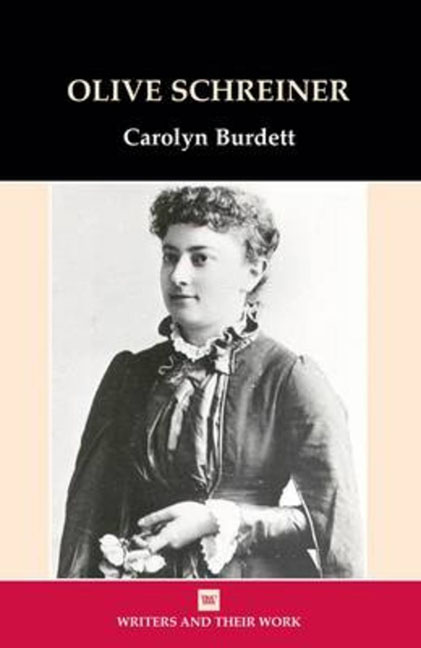Book contents
- Frontmatter
- Dedication
- Contents
- Acknowledgements
- Biographical Outline
- Abbreviations
- Introduction
- 1 Evangelicalism, Freethought and Love: Undine and The Story of an African Farm
- 2 Sex Work: Woman and Labour, Stories and Allegories, From Man to Man
- 3 A Returned South African
- Notes
- Select Bibliography
- Index
2 - Sex Work: Woman and Labour, Stories and Allegories, From Man to Man
- Frontmatter
- Dedication
- Contents
- Acknowledgements
- Biographical Outline
- Abbreviations
- Introduction
- 1 Evangelicalism, Freethought and Love: Undine and The Story of an African Farm
- 2 Sex Work: Woman and Labour, Stories and Allegories, From Man to Man
- 3 A Returned South African
- Notes
- Select Bibliography
- Index
Summary
‘England at last!’ Schreiner wrote in her journal when she arrived there at the end of March 1881 (LiOS 145). She was to spend the next eight years in England and on the Continent, and this chapter focuses on how Schreiner participated in, and was influenced by, the distinctive political, scientific and aesthetic enthusiasms of the decade. Abandoning her initial plan to pursue medical training because of asthma-related health problems, Schreiner decided that ‘scribbling will be my only work in life’ (LiOS 151). As the recently published African Farm became ‘a node of mutual recognition among young radicals in London’, Schreiner had ready access to debates about social change that were gathering momentum in the first half of the decade. One enthralled reader of the novel was the young Havelock Ellis, who later became Britain's foremost sexologist. He wrote to Schreiner, and they began a love affair that turned into a life-long friendship. With Ellis, Schreiner attended the newly-formed Progressive Association, a group of freethinkers and ethical socialists, and the Fellowship of the New Life. The latter, dedicated to ‘the cultivation of a perfect character in each and all’, formed the nucleus of what was to become the Fabian Society. Here, Schreiner met Edward Carpenter, the utopian socialist, who became another close friend. She also befriended like-minded women: some, like her, were making reputations as writers, and most were involved in socialist or other progressive organizations. They included Eleanor Marx, Karl Marx's daughter, the poets Amy Levy and Dollie Radford, the children's novelist, Edith Nesbit, Alice Corthorn, who qualified as a doctor, and Margaret Harkness, a socialist activist and social-realist novelist.
At meetings of the Fellowship of the New Life, the topic of women's equality was soon known as ‘Olive's subject’ (OSB 145). The Victorian ‘Woman Question’ became more urgent in the atmosphere of the 1880s: agendas that had been formulated earlier in the century by Owenites and Chartists were seized upon and reinvigorated. As the population of Britain expanded over the second half of the century employment prospects and conditions for both middle- and working-class women were the focus of contention.
- Type
- Chapter
- Information
- Olive Schreiner , pp. 34 - 62Publisher: Liverpool University PressPrint publication year: 2005



